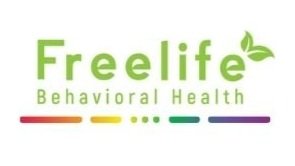Exploring Non-Monogamy with Couples
by Ian Bonner
Many couples seek couples therapy to get support in exploring whether consensually non-monogamous relationships could be right for them. Lots of people these days are somewhat familiar with terms like open relationships, polyamory, and ethical non-monogamy, but struggle to articulate what about exploring these relationship dynamics is so important to them and how to discuss that with their partners.
When we talk about non-monogamy, we usually think first about the physical aspect. The assumption is that this is exclusively about physical desire for sex with someone other than your primary partner. While sex may be a part of what people are desiring, the desire to open a relationship is often much more nuanced and based in emotional needs. A good way to start the conversation around ENM is to ask people about how they hope it will make them FEEL rather than what they want to DO.
Often, clients will respond to this question in some telling ways. Common answers include
· I want to feel desired again
· I want to feel connected to new and exciting people
· I want to feel less lonely than I do in this relationship, even though I love it
· I want to feel more free and less confined
· I want to feel less sexually frustrated
· I want to express a part of me that I can’t express sexually with my primary partner
What is particularly helpful about this approach in couples therapy, is that it helps both partners understand what the other is actually seeking in an open or poly relationship. As you can see from these answers, some of these point to a need for more or different types of sex but others are much more about a need or desire for emotional connection.
Social Connection:
Among humans (and many of our primate cousins), sex has a lot to do with connection and group inclusion. For many people, particularly gay men and other queer people, entering a monogamous relationship can feel like closing a door to building community. Many queer people begin a large number of their friendships as dating or sexual relationships and losing that feels threatening to them. In asking for an open relationship, some people are really wanting to recover a lifeline to building friendship and community that is often exceptionally important for queer people who rely on chosen family as their primary source of support. In these instances, what may be most important in opening the relationship is the ability to flirt, date, connect, and forge friendships which may be initially sexual in nature but ultimately are about forming bonds and social inclusion.
Feeling Desired:
For many people, feeling deeply desired is an integral part of their happiness and wellbeing. As relationships progress, the intensity of the initial sexual desire in relationships often diminishes and gets replaced with a more comfortable, gentle, and possibly mundane form of attraction. While this is less stormy and can feel safe and reliable, it can also lead to despair for people who deeply want to feel a clear and strong sexual desire from another person. This can lead to a feeling of crisis for both parties when one cannot manufacture the desire they felt years ago while the other keeps needing it. In these instances, opening the relationship may be about allowing one or both parties to have experiences with others where they get to have the thrill of new relationship and being wanted while working to reassure their primary partners that this does not devalue the primary relationship.
Needing More Than One:
For another group of people, one partner may simply not be enough to meet the emotional needs of one or more members of a couple. Many people in monogamous relationships know that they love their partner, find no fault in them, but still feel lonely or unfulfilled. This can be confusing to their partners when they hear about or observe these needs. There is a tendency to interpret this to mean that there is something defective in the relationship or that one party wants to leave, which is often not the case. In these instances, talking openly about polyamory can be helpful which involves being clear about wanting or needing multiple connected relationships. Polyamory differs from open relationships in that it emphasizes forming multiple emotionally connected relationships and may or may not involve sex with those individuals.
If you or your partner are thinking about your own needs or desires for something other than a strictly physically and emotionally monogamous relationship, talking with a skilled counselor who is affirming on ethically non-monogamous relationships can help tremendously. Click here for more information about scheduling an appointment with a skilled therapist today.
